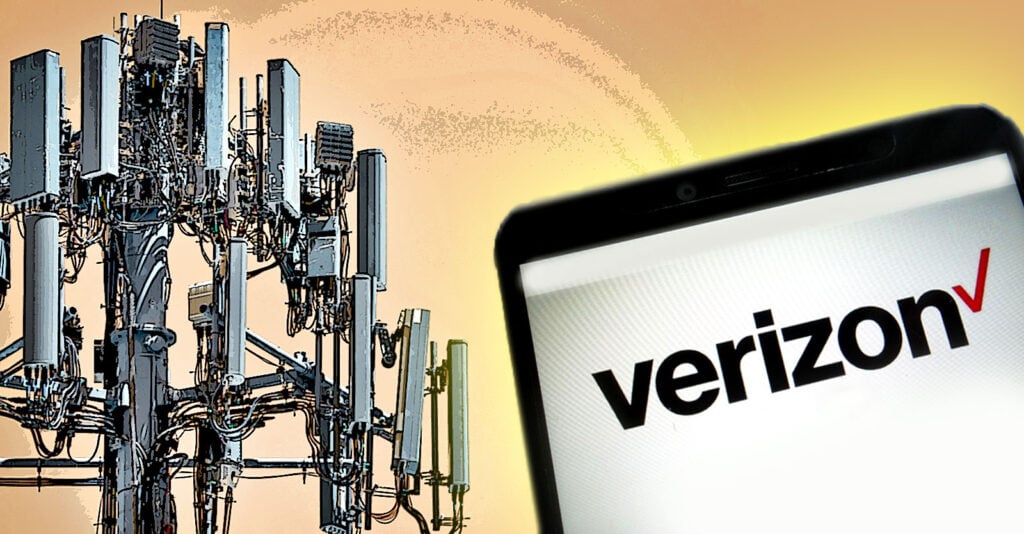Residents of Minden, Nevada, have temporarily stopped Verizon from putting up two 5G cell towers in their community near where children learn and play. But the battle isn’t over, they say.
Verizon wants to erect two 80-foot cell towers in Minden, about 20 miles from Lake Tahoe and home to roughly 3,000 residents.
“They are relentless,” Casey Rodgers, a Minden resident and leader of the grassroots group, “Minden for Safe Tech,” told The Defender. “One of their proposed towers is by a high school next to a dance studio and a daycare, and across the street from a neighborhood. The other is next to a park, across the street from an elementary school and neighborhood.”
Both towers would be on land owned by the town’s fire department. The towers would loom “directly above our bravest men and women in uniform, our firefighters and paramedics,” Rodgers said.
With help from Children’s Health Defense’s (CHD) Stop 5G initiative, Rodgers and other Minden residents have been pushing back against Verizon since learning of the plans in January 2024.
W. Scott McCollough, lead litigator for CHD’s Electromagnetic Radiation (EMR) & Wireless cases is representing the Minden residents through CHD’s Stop5G Community Empowerment Consulting.
The initiative — which includes legal representation and public relations expertise from CHD’s EMR & Wireless team — “empowers local communities and safe technology organizations across the U.S. to effectively oppose proposed cell tower and small cell installations in their neighborhoods,” according to its website.
Rodgers said that choosing McCollough to represent them was the “best decision” the Minden residents made. “We believe without him we wouldn’t be as far as we are right now,” she said.
On Sept. 10, Minden’s planning commission approved one tower project and denied the other. The residents appealed the project that was approved. Verizon appealed the project that was denied.
Minden residents submitted a legal response opposing Verizon’s appeal. “We support the Commission’s decision to deny the application,” the response said.
On Dec. 5, the Minden residents scored a victory when county supervisors, who heard the appeal cases, unanimously voted to hold off issuing a permit for either tower until at least April 3. The supervisors said that until then, Verizon should look for alternative sites, according to McCollough.
McCollough told The Defender that the county supervisor’s decision favors the Minden residents. “We got the better of this although we did not succeed in getting both denied yet,” he said.
Miriam Eckenfels, director of CHD’s EMR & Wireless program, told The Defender that the Minden residents serve as an example of how local communities can successfully step up to the table and strategically push back against attempts to put cell towers close to where they live.
“We are proud to be representing the residents of Minden, Nevada,” she said. “We commend them for the amazing effort they have made so far and are looking forward to continuing to support them every step of the way until this matter is brought to an acceptable conclusion.”
‘Parents do not want their children next to a 5G tower’
During the Dec. 5 hearing, Minden residents delivered public comments outlining why they didn’t want the towers placed near a school, a daycare, a park, residential neighborhoods and where firefighters work.
So many showed up to speak that they formed a “line out the door” as each waited for their three minutes to speak, McCollough said. All who spoke opposed or questioned some aspect of Verizon’s plans.
Verizon wants to put one of the towers 235 feet from a locally owned daycare, Rodgers told The Defender. “That’d put her out of business because the parents do not want their children next to a 5G tower.”
Rodgers and the residents have educated themselves on how to strategically fight a cell tower proposal. For instance, they know that the Telecommunication Act of 1996 doesn’t allow local authorities to deny a cell tower application based on health concerns.
So although they are highly concerned about the health implications of 5G cell towers, they outlined in their public comments and case documents how Verizon’s proposed towers would lower property values and could increase fire risks.
“We know we can’t win on health,” Rodgers said, “but these towers are ugly and unsafe, so there are other ways to win against their installation.”
The residents want Verizon to choose a “more suitable” tower location “away from families, away from education facilities full of children, away from our bravest and finest, and away from places where families enjoy their lives,” Rodgers said.
That’s not an impossible request, McCollough said. “There is a lot of open space away from schools and residential neighborhoods, including some BLM land.”
BLM land is public land managed by the U.S. Department of the Interior’s Bureau of Land Management.
‘Find your people, stay together and don’t quit’
Rodgers, who grew up in Minden and returned 14 years ago, said many of the town’s residents have come together to stop Verizon from putting its towers near schools, businesses and homes. “This is a full-force group effort.”
The members of Minden for Safe Tech have worked to educate themselves and their broader community — “especially those in local authority” — about why it’s a bad idea to put cell towers so near where people live, work and play.
For instance, many people aren’t aware that the Federal Communication Commission’s safety limits for wireless radiation are decades old and based on a handful of studies from the 1970s and 1980s with tiny sample sizes.
Both CHD and the Environmental Health Trust were good sources of scientific and regulatory information on wireless radiation, Rodgers said.
She added:
“We battle with the untruths that the ‘other side’ has and continues to propagandize our community with, but it is to be decided who is more relentless on that front. We are not giving up. This team has stuck together through all our disagreements and struggles.”
Every community member has something to offer. For instance, some in Minden for Safe Tech researched and presented information publicly. Others opened their homes for group meetings. One person had a helpful background in engineering. Others set up areas to display the group’s mission and talk with other community members.
“We also came together financially to make this happen,” she said. They agreed to split all costs. “We worked together every step of the way and made one of the greatest teams to fight 5G for our community.”
Rodgers, who knows that many communities across the U.S. face similar 5G cell tower proposals, advised, “Find your people, stay together and don’t quit.”
Also, be aware of what’s happening in your community. Minden residents learned about Verizon’s plans when Rodger’s neighbor heard about them at a fire department board meeting. “People need to be aware of all the things going on locally,” Rodgers warned.
Other keys to their success included submitting a Freedom of Information Act request to identify the proposed site and having conversations with others about their concerns regarding the proposed tower.
She added:
“These people putting up towers are sneaky and could care less about what happens to you or your family. They lie, they cheat and they steal lives in the process — all for the love of money.
“So please say something to a neighbor. You never know if a small conversation could make a big impact. Just start the conversation so it spreads.”
Verizon did not respond to our request for comment by the deadline.
Source: https://childrenshealthdefense.org/defender/minden-nevada-win-verizon-5g-towers/





